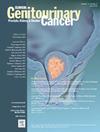Safety and Efficacy of Lutetium-177 PSMA Therapy for Metastatic Castration-Resistant Prostate Cancer: A Systematic Review and Meta-Analysis of Randomized Controlled Trials
IF 2.7
3区 医学
Q3 ONCOLOGY
引用次数: 0
Abstract
Background and aim
Prostate-specific membrane antigen (PSMA)-targeted radioligand therapy using lutetium-177 has emerged as a promising treatment for metastatic castration-resistant prostate cancer (mCRPC). In this systematic review and meta-analysis, the safety and efficacy of PSMA-targeted radioligand therapy (PRLT) using lutetium-177 ([177Lu]Lu-PSMA) were assessed.
Methods
This meta-analysis was conducted in accordance with the Preferred Reporting Items for Systematic Reviews and Meta-Analysis (PRISMA) guidelines. A detailed searches were conducted across PubMed, EMBASE, Cochrane Library and Scopus for randomized controlled trials (RCTs) on [177Lu]Lu-PSMA radioligand therapy in mCRPC. Prostate-specific antigen (PSA) responses, toxicity profiles, and outcomes including radiographic progression-free survival (rPFS) and overall survival were assessed. Quantitative analyses with Review Manager 5.4 software, using Risk estimates (hazard ratios, RR and OR) and 95% confidence intervals for outcomes in random effects were performed.
Results
Six RCTs involving 2113 patients with mCRPC were included in the meta-analysis. Patients treated with [177Lu]Lu-PSMA had a significantly higher response to therapy compared to controls based on ≥50% PSA decrease (OR = 4.27; 95% confidence interval [CI]: 2.59-7.06; P < .00001) and objective response rate (ORR) (RR=2.93; 95% CI, 1.62-5.30; P = .0004). [177Lu]Lu-PSMA reduced the risk of rPFS (HR=0.57; 95% CI, 0.46-0.70; P < .00001). However, no significant impact on overall survival was observed (HR = 0.81; 95% CI, 0.62-1.06; P = .13). No significant difference in grade ≥3 adverse events was reported (RR = 0.85; 95% CI, 0.63-1.15; P = .32).
Conclusion
These findings support the use of [177Lu]Lu-PSMA for metastatic castration-resistant prostate cancer, demonstrating both safety profile and efficacy. The potential of this therapeutic approach warrants further investigative efforts to optimize treatment methodologies and improve the quality of patient care and the criteria for patient selection.
黄体-177 PSMA治疗转移性去势抵抗性前列腺癌的安全性和有效性:随机对照试验的系统评价和荟萃分析
背景和目的:使用镥-177靶向前列腺特异性膜抗原(PSMA)放射配体治疗已成为转移性去势抵抗性前列腺癌(mCRPC)的一种有希望的治疗方法。在这项系统回顾和荟萃分析中,评估了使用镥-177 ([177Lu]Lu-PSMA)靶向psma放射配体治疗(PRLT)的安全性和有效性。方法本荟萃分析按照系统评价和荟萃分析首选报告项目(PRISMA)指南进行。我们在PubMed、EMBASE、Cochrane Library和Scopus上详细检索了关于[177Lu]Lu-PSMA放射配体治疗mCRPC的随机对照试验(rct)。评估前列腺特异性抗原(PSA)反应、毒性特征和结果,包括放射学无进展生存期(rPFS)和总生存期。使用Review Manager 5.4软件进行定量分析,使用风险估计(风险比、RR和OR)和随机效应结果的95%置信区间。结果纳入6项随机对照试验,共2113例mCRPC患者。与对照组相比,接受[177Lu]Lu-PSMA治疗的患者对PSA降低≥50%的治疗反应显著更高(OR = 4.27;95%置信区间[CI]: 2.59-7.06;P & lt;.00001)和客观缓解率(ORR) (RR=2.93;95% ci, 1.62-5.30;P = .0004)。[177]Lu-PSMA降低rPFS的风险(HR=0.57;95% ci, 0.46-0.70;P & lt;.00001)。然而,未观察到对总生存期的显著影响(HR = 0.81;95% ci, 0.62-1.06;P = .13)。≥3级不良事件发生率无统计学差异(RR = 0.85;95% ci, 0.63-1.15;P = .32)。结论这些研究结果支持[177Lu]Lu-PSMA用于转移性去势抵抗性前列腺癌,证明了安全性和有效性。这种治疗方法的潜力保证了进一步的研究工作,以优化治疗方法,提高患者护理质量和患者选择标准。
本文章由计算机程序翻译,如有差异,请以英文原文为准。
求助全文
约1分钟内获得全文
求助全文
来源期刊

Clinical genitourinary cancer
医学-泌尿学与肾脏学
CiteScore
5.20
自引率
6.20%
发文量
201
审稿时长
54 days
期刊介绍:
Clinical Genitourinary Cancer is a peer-reviewed journal that publishes original articles describing various aspects of clinical and translational research in genitourinary cancers. Clinical Genitourinary Cancer is devoted to articles on detection, diagnosis, prevention, and treatment of genitourinary cancers. The main emphasis is on recent scientific developments in all areas related to genitourinary malignancies. Specific areas of interest include clinical research and mechanistic approaches; drug sensitivity and resistance; gene and antisense therapy; pathology, markers, and prognostic indicators; chemoprevention strategies; multimodality therapy; and integration of various approaches.
 求助内容:
求助内容: 应助结果提醒方式:
应助结果提醒方式:


